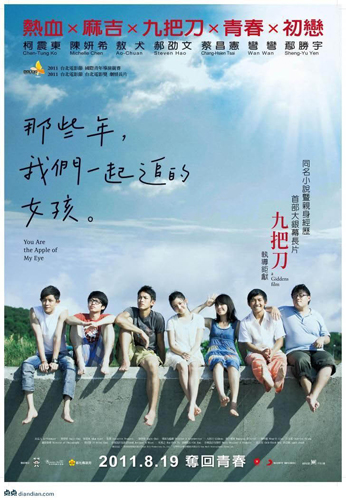Tiny Times, Big Money
On June 27, 2013, the day Tiny Times opened, in Kaifeng, Henan province, 17-year-old Wang Jiaqi bought 12 tickets – to watch it with friends. Many other young people were part of this craze. On that day alone, 2.3 million Chinese watched 36,000 screenings of the movie across the country, generating RMB 72 million – the highest opening day ticket sales for any 2-D Chinese-language production. TT soon soared beyond Man of Steel to box-office No. 1, having brought in RMB 468 million.
Two months later Tiny Times 2 was released, and the sizzle continued. The first two days of screening had ticket sales hitting RMB 97 million, running rings around two other films competing at the same time.
The two Times are, however, wildly contentious. There are those who love the films dearly and others who sneer at them as trash. Both sides expressed strong opinions, their disputes almost boiling over on the Internet.
Tiny Times was the directorial debut of post-1980s writer Guo Jingming, who has a strong fan base among Chinese youth. Set in Shanghai, China’s economic and fashion showcase, the movie follows the loves, friendships and family ties of four girls holding disparate values and attitudes towards life. Fitting its plot and youth genre, the film is glutted with sassy sexy girls and boys clad in luxury brands head to toe. A heroine, supposedly of the working class, owns several handbags all priced over RMB 10,000, and one cup shown in the film, as spotted by some viewers, was price-tagged at about RMB 4,800. One critic exclaimed: “Guo Jingming’s blatant promoting of consumerism is awful.”
Guo, however, denies the charge, insisting his film rebukes money worship, in what is just an honest depiction of this phenomenon among youth. His defense is rather weak, as what viewers first and foremost discern on the screen is an outrageous extravagance, and a gleeful indulgence in it – no matter what the director might have intended. The excuse “for the sake of cinematic aesthetics” barely holds water. Many trash Tiny Times as a flashy naive mirage that could poison a young audience’s view of life.
A survey by Datatopia of Weibo (social network) users found viewers of Tiny Times to be on average 20.3 years old. Predominantly female – above 80 percent – they are active on social networks, and mostly live in second- and third-tier cities. China’s leading newspaper People’s Daily published a commentary warning that Tiny Times may reduce youth’s vision of the bigger picture of life and the world by misleading them to embrace material comforts and consumerism as the norm.
Every stage in China’s modern history, from revolution to national reconstruction, has targeted the younger generations with film. Some films have changed lives. Medical scientist Xiu Ruijuan once told actress Qin Yi: “You are why I’ve become who I am.” At the age of 12, Xiu watched a movie where Qin plays the part of a woman soldier fighting Japanese invaders, which made her resolve to become a heroine herself someday.
As the times change, the world of the young evolves along with it. Yet youth remains a favorite theme of filmmakers who fondly look back on such earlier years etched by passion and innocence, qualities which often wear thin in the process of growing up. This nostalgia is usually well received by audiences.
 |
| You Are the Apple of My Eye |
We recommend:
